From the wag of their tails to the boundless energy in their eyes, dogs are cherished members of our families. But what happens when those beloved companions tip the scales towards obesity? Just like humans, dogs can suffer from the adverse effects of carrying excess weight. Let’s delve into the world of obesity in dogs and unravel the health risks associated with overweight furry friends.
Contents Overview
Obesity in dogs poses a myriad of health risks, including joint problems, decreased mobility, respiratory issues, heart disease, diabetes, skin and coat problems, and increased surgical risk. Carrying excess weight puts strain on joints, impacts mobility and stamina, and can lead to serious conditions like heart disease and diabetes. Furthermore, obese dogs often experience a reduced lifespan compared to those at a healthy weight. Recognizing these risks and taking proactive measures to manage weight and promote a healthy lifestyle are vital for ensuring the well-being and longevity of our beloved canine companions.
The Growing Epidemic
With an increasing number of pampered pooches and a rise in sedentary lifestyles, obesity in dogs has become a prevalent concern. According to the Association for Pet Obesity Prevention, an alarming 60% of dogs in the United States are overweight or obese. This trend mirrors the obesity epidemic in humans, highlighting the importance of addressing this issue.
Identification of Obesity in Dogs
Before diving into the health risks, it’s crucial to recognize the signs of obesity in dogs. Keep an eye out for:
Obesity in dogs is identified through body condition scoring (BCS) systems and weight assessments. BCS evaluates factors like palpable fat deposits, waistline visibility, and overall body shape to determine if a dog is overweight or obese. Veterinarians may also use weight charts and measurements to assess a dog’s body mass index (BMI) and compare it to breed standards.
Obesity in dogs is when they carry excess body fat, which can be harmful to their health. Veterinarians check things like how much fat a dog has, if their waistline is visible, and their overall shape to see if they’re too heavy. They might also weigh the dog and compare it to what’s normal for their breed.
- Difficulty feeling your dog’s ribs beneath a layer of fat.
- Noticeable loss of waistline or an absence of an hourglass figure.
- Excessive panting or reduced stamina during physical activity.
- Difficulty moving or reluctance to exercise.
Health Risks of Overweight Dogs
Obesity doesn’t just affect a dog’s appearance—it can have serious repercussions on their health and well-being. Here are some of the health risks associated with overweight dogs:
- Joint Problems:
- Excess weight puts immense strain on a dog’s joints, leading to conditions like arthritis.
- Over time, the wear and tear on the joints can result in pain, stiffness, and decreased mobility.
- Diabetes:
- Just like in humans, obesity increases the risk of developing diabetes in dogs.
- Insulin resistance and abnormal blood sugar levels can lead to diabetes mellitus, requiring lifelong management.
- Heart Disease:
- Overweight dogs are more susceptible to cardiovascular issues such as hypertension and heart disease.
- The heart has to work harder to pump blood throughout the body, leading to strain and potential complications.
- Respiratory Problems:
- Excessive weight can restrict a dog’s ability to breathe properly, leading to respiratory issues.
- Conditions like tracheal collapse and labored breathing may arise, posing serious health concerns.
- Decreased Lifespan:
- Studies have shown that overweight dogs have a shorter lifespan compared to their healthier counterparts.
- Obesity contributes to a host of health problems that can significantly reduce a dog’s quality of life and longevity.
- Digestive Disorders:
- Obesity increases the risk of gastrointestinal problems such as pancreatitis and liver disease.
- Digestive organs may become overwhelmed by the excess fat, leading to inflammation and dysfunction.
- Skin and Coat Issues:
- Overweight dogs are more prone to skin infections and dermatitis due to folds of excess skin.
- Poor grooming habits and restricted mobility can exacerbate skin and coat problems in obese dogs.
- Increased Surgical Risks:
- Anesthesia and surgical procedures carry higher risks for overweight dogs.
- Complications such as poor wound healing, respiratory distress, and surgical site infections are more common in obese pets.
Combatting Canine Obesity
Fortunately, obesity in dogs is a preventable and manageable condition. Here are some tips to help your furry friend achieve and maintain a healthy weight:
- Balanced Diet
Feed your dog a high-quality, nutritionally balanced diet appropriate for their age, breed, and activity level. Avoid overfeeding and limit treats, opting for healthy alternatives like fruits and vegetables.
- Regular Exercise
Encourage regular physical activity to keep your dog fit and active. Take them for daily walks, engage in interactive play sessions, or enroll them in agility classes. Just like humans, dogs benefit greatly from regular exercise.
- Portion Control
Be mindful of portion sizes and avoid free-feeding. Use measuring cups to accurately portion out your dog’s meals, and consider feeding smaller, more frequent meals throughout the day to prevent overeating.
- Veterinary Care
Schedule regular check-ups with your veterinarian to monitor your dog’s weight and overall health. Your vet can provide tailored advice and recommend appropriate dietary and exercise plans based on your dog’s individual needs.
- Behavioral Changes
Address any underlying behavioral issues that may contribute to overeating, such as boredom or anxiety. Provide mental stimulation through puzzle toys, interactive games, and obedience training to keep your dog engaged and satisfied.
Bottom Line
Obesity in dogs is a multifaceted issue with serious health implications, but it’s one that can be tackled with dedication and proactive care. By providing a balanced diet, regular exercise, and veterinary support, pet owners can help their furry companions achieve and maintain a healthy weight. Together, let’s ensure our dogs lead happy, active lives free from the burden of obesity.
Key Takeaways
- Obesity in dogs is a serious health concern with numerous consequences.
- Excess weight can lead to joint problems like arthritis and decreased mobility.
- Respiratory issues may arise due to compressed airways from excess fat.
- Dogs may develop heart disease, including congestive heart failure, as a result of obesity.
- Obesity increases the risk of diabetes mellitus in dogs, necessitating careful monitoring of blood sugar levels.
- Studies indicate that obese dogs have shorter lifespans and are prone to life-threatening conditions.
- Skin problems, such as dermatitis, can occur due to inadequate grooming in obese dogs.
- Anesthetic complications and surgical risks are heightened in obese dogs, making procedures more challenging.
- Overall, obesity in dogs adversely affects their health and longevity, emphasizing the importance of weight management and a healthy lifestyle.















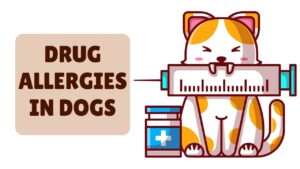



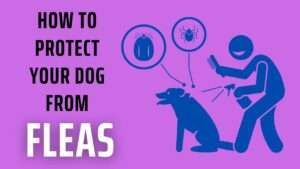
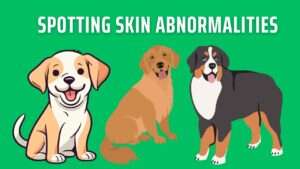

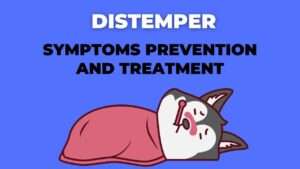

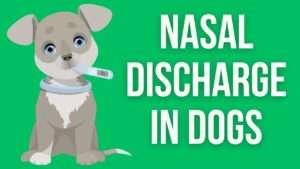
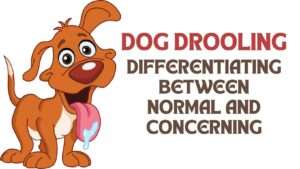









+ There are no comments
Add yours